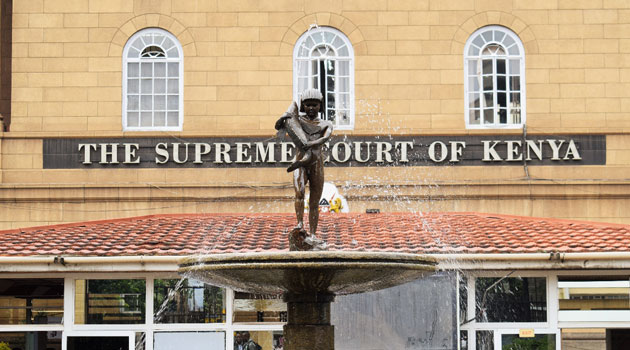MP Peter Kaluma’s LGBTQ Ruling Challenge Petition Dismissed by Kenyan Supreme Court

The Supreme Court of Kenya has today the 12th of September, 2023 dismissed an application made by MP Peter Kaluma from HomaBay Town. The main intent of Kaluma’s application was to challenge a court decision related to the registration of an LGBTQ advocacy group as well as the interpretation of the term ‘sex’ as applied in this LGBTQ case.
In his submission that was dated March 9, 2023, MP Kaluma urged the Supreme Court to stop the implementation of orders allowing the NGO Coordination Board (identified as the 1st respondent) to enrol members from the LGBTQ community.
Furthermore, the Mr Kaluma contested a ruling issued on February 24, 2023, where the Court shed light on the meaning of the term ‘sex’ as per Article 27(4) of the Kenyan Constitution. According per today’s judgment, ‘sex’ encompasses ‘sexual orientation of any gender,’ involving individuals of various sexual orientations such as heterosexuals, lesbians, gays, intersex, and others.
According to the court documents, the Court determined and officially stated that in Article 27(4) of the Kenyan Constitution, the term “sex” encompasses the concept of “sexual orientation” across all genders, including but not limited to heterosexual, lesbian, gay, intersex, and other categories. Additionally, the word “including,” as used in Article 27(4), indicates that it covers the “protection from discrimination based on an individual’s sexual orientation.”
In today’s decision, the Supreme Court dismissed Kaluma’s arguments, pointing out that the MP failed to establish in his appeal that the Court had made an inaccurate judgment.

As per the court documents, the Court argued that the applicant did not demonstrate how his case met the specific criteria as per Section 21A of the Supreme Court Act or the Outa case.
In addition, Mr. Kaluma never satisfactorily showed that the judgment in question was tainted by fraud or deception, was invalid, or that the Court had been misled into deciding a mistaken belief that the involved parties had consented to it.
The Court viewed Kaluma’s application as essentially a disguised attempt to challenge the Court’s initial judgment, contending that it did not align with the established parameters for review as defined by statutory law and relevant legal precedents. Consequently, the Court rejected the application.
Furthermore, the Supreme Court invalidated Kaluma’s appeal, citing procedural errors in his submissions due to his non-involvement as a ‘party’ in the original case. Section 21A of the Supreme Court Act outlines the circumstances under which the Court may reconsider its decision, specifically in applications made by “a party.”
Since Kaluma was not a party to the original proceedings, the Court could not entertain his application for judgment review, as this would compromise the integrity of the previously litigated case.
As a result, the Court determined that Kaluma lacked the competence to seek a review of the referenced judgment.
Additionally, Kaluma has been ordered to cover all the costs associated with the case. The Court pointed out that given Kaluma’s status as an Advocate of the High Court of Kenya and a Member of Parliament, he should have been aware that his initial application was fundamentally flawed from the outset, and therefore, he must bear the associated costs.






Good insights
Thank you Brian